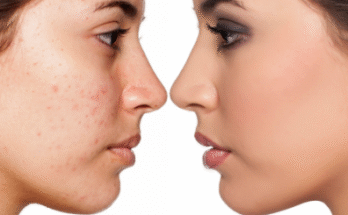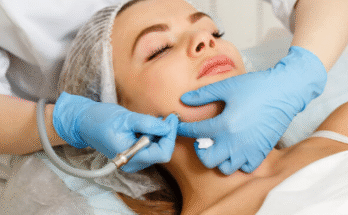Acne is one of the most common skin concerns people experience, and it often leaves us searching for ways to calm breakouts and restore skin balance.
Among the many options available, face masks stand out as a soothing and enjoyable part of skincare routines.
They not only help target acne-related issues but also provide a moment of relaxation. Knowing how to use them properly can make a big difference in your results.
Understanding the Role of Face Masks in Acne Care
Face masks are not a replacement for consistent skincare or professional advice, but they can be a helpful addition. Acne is often influenced by factors like excess oil production, clogged pores, bacteria, stress, and even diet. While a single mask will not cure acne overnight, the right formula can help draw out impurities, calm inflammation, and improve the overall condition of your skin.
There are different kinds of masks available, and each serves a unique purpose. Clay masks, for example, are excellent for absorbing oil and clearing pores. Hydrating masks are beneficial if your skin is dry and irritated from acne treatments. Exfoliating masks that use gentle ingredients can also help by removing dead skin cells and allowing other treatments to work more effectively.
Choosing the Right Mask for Your Skin
The first step is selecting a mask that suits your skin type and acne concerns. If your skin is oily and prone to blackheads or whiteheads, clay or charcoal masks are often useful. These ingredients act like magnets, drawing out oil and dirt from deep within the pores. If your skin is sensitive or experiences redness, masks with soothing ingredients such as aloe vera, chamomile, or oatmeal may be more suitable.
Those who are using prescription treatments for acne, such as retinoids or benzoyl peroxide, may find their skin becoming dry or irritated. In that case, a hydrating mask with ingredients like hyaluronic acid, cucumber, or honey can restore comfort without clogging pores.
It is also important to check the ingredient list. Masks with alcohol or strong fragrances can be harsh on acne-prone skin. Instead, look for gentle, non-comedogenic formulas designed specifically for problem skin.
Preparing Your Skin Before Applying a Mask
Before applying any mask, preparation is essential. Start with a gentle cleanser to remove dirt, oil, and makeup. Cleansing ensures that the active ingredients in the mask can penetrate more effectively. Use lukewarm water rather than hot water to avoid irritating your skin.
Once your face is clean, pat it dry with a soft towel. Avoid rubbing the skin aggressively, as acne-prone areas are often sensitive. Some people like to steam their face briefly before applying a mask to open pores, but this step should be approached carefully. If you choose to steam, keep the session short and use mild warmth to avoid aggravating inflammation.
How to Apply a Face Mask Correctly
When applying a mask, use clean hands or a soft brush designed for skincare. This prevents bacteria from transferring to your skin. Spread a thin, even layer across your face, avoiding the eye and lip areas. If you only experience acne in specific zones, such as your forehead or chin, you can use the mask as a spot treatment rather than covering your entire face.
Follow the instructions on the packaging regarding how long to leave the mask on. Leaving a mask on for longer than recommended does not increase its effectiveness and may cause irritation. For most clay or exfoliating masks, 10 to 15 minutes is enough. Hydrating masks may be left on slightly longer, depending on the formula.
Rinsing and Aftercare
When it is time to remove the mask, rinse gently with lukewarm water. Using a soft washcloth can help, but avoid scrubbing. Pat your skin dry and follow up with a lightweight moisturizer. Moisturizing is important, even for oily or acne-prone skin, because it maintains balance and prevents overproduction of oil.
If you use acne treatments like topical creams or gels, apply them after moisturizing, unless your healthcare provider has recommended a different routine. The mask prepares the skin, so these treatments may absorb more effectively afterward.
How Often Should You Use Face Masks for Acne?
The frequency of masking depends on your skin type and the type of mask. Clay or exfoliating masks are usually best limited to once or twice per week to avoid over-drying. Hydrating or soothing masks can often be used more frequently, even a few times per week, depending on your needs.
Consistency is more effective than overuse. Applying masks too often can strip the skin and cause it to produce more oil, which may worsen breakouts. Pay attention to how your skin reacts and adjust your routine accordingly.
Additional Tips for Success
Using face masks for acne is most effective when combined with other healthy skincare habits. Wash your face twice daily with a gentle cleanser, avoid picking or squeezing blemishes, and maintain a balanced lifestyle with sufficient rest and hydration. Stress and lack of sleep can contribute to acne flare-ups, so self-care beyond skincare products is equally important.
It can also help to rotate masks based on your skin’s changing needs. For example, you might use a clay mask once a week to clear pores and a hydrating mask another day to soothe and replenish moisture. This approach provides balance and avoids overloading your skin with one type of treatment.
Remember that results take time. Even though masks can give your skin an immediate refreshed look, consistent use over weeks or months will make the biggest difference. Patience is key when it comes to acne care.
When to Seek Professional Advice
While face masks can be helpful, they may not be enough for more severe or persistent acne. If you find that breakouts continue despite a consistent routine, consider consulting a dermatologist. Professional treatments and medical advice can provide solutions that at-home products cannot. Masks can still play a role as supportive care, offering comfort and relaxation alongside professional treatments.
Final Thoughts
Using face masks for acne can be both enjoyable and beneficial when done thoughtfully. They offer a moment of calm in a busy day while addressing skin concerns like oiliness, congestion, or irritation. By choosing the right type of mask, preparing your skin properly, and using them consistently but not excessively, you can support your overall acne care routine.
Remember that clear skin is a journey, and face masks are one step along the way. With patience, balanced skincare habits, and attention to what your skin truly needs, you can make the most of this simple yet effective ritual.

